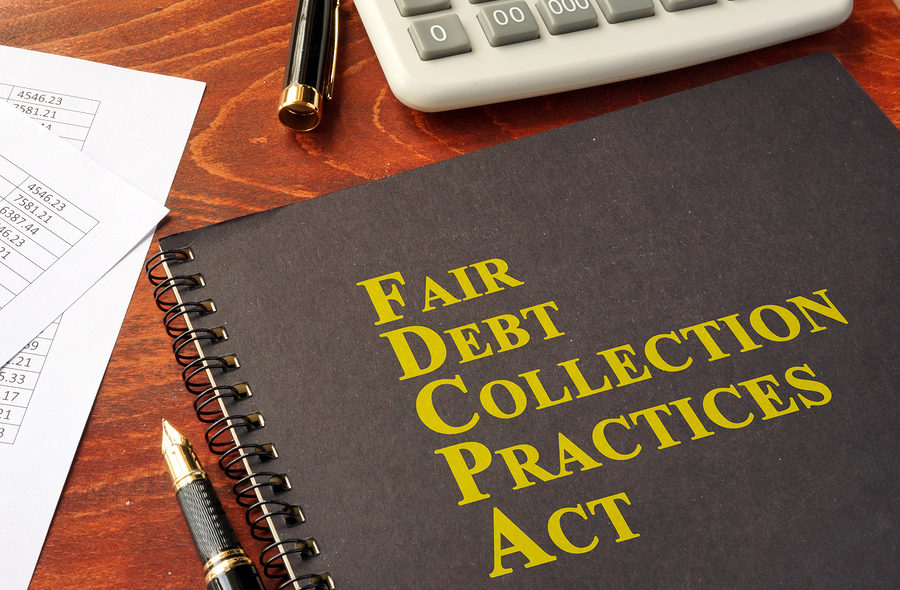Most people never expect to fall behind on their debts. Sometimes, however, circumstances beyond a person’s control result in them being contacted by a debt collector. This is not uncommon today. In fact, 77 million American consumers or 35 percent of all adult consumers have a debt in collection.
Being on the receiving end of debt collection phone calls and other communication can be extremely stressful. Debt collectors are paid to do whatever they can to get a consumer to pay off a debt, which often results in the collectors trying to reach the consumer through phone calls, emails, texts, and direct mail so much that it borders on harassment. However, federal law prohibits certain behaviors from third-party debt collectors to protect the consumer.
These protections exist under the Fair Debt Collection Practices Act (FDCPA), a federal law which provides guidance to third-party debt collectors on what types of behaviors are unacceptable when collecting on a debt and offers protection to consumers who are on the receiving end of threatening or illegal debt collection practices.
The Fair Debt Collection Practices Act (FDCPA) is a federal law that governs how debt collectors (including a bank that collects its own debt under another business name) operate and prohibits debt collectors from using unfair or deceptive practices to collect debts.
Under the FDCPA, a debt collector may not “engage in any conduct the natural consequence of which is to harass, oppress, or abuse any person in connection with the collection of the debt.” This conduct can include several the following actions or behaviors:
- Threatening to use or using violence or other criminal behavior to harm the consumer, the consumer’s reputation or his or her property,
- Making false statements alluding to the debt collector representing a governmental authority, attorney, or law enforcement officer,
- Making misleading or false statements on how much is owed or the legal status of the debt,
- Threatening to arrest or imprison the consumer for failure to make payment, and
- Excessively calling the consumer with the intent of annoying, harassing or abusing the consumer.
The FDCPA also prohibits the collector from making calls before 8 a.m. or after 9 p.m. The debt collection agency must always identify who they are with each phone call. Additionally, the collection agency may not call the consumer at work or provide information to the consumer’s family and friends about the debt.
If the consumer is experiencing any of these collection tactics, he or she has rights. The consumer can hire the services of an attorney to help field the calls. The consumer can also send the collection agency a cease-and-desist letter by certified mail, informing the collection agency that they have violated the FDCPA and are to cease communications with the consumer. At that point, if the collection agency still wants to pursue collection of the debt, they may do so through legal action by filing a collections action in court.
Please click here to read more.
If you have questions on this topic or are in financial crisis and considering filing for bankruptcy, contact an experienced Miami bankruptcy attorney who can advise you of all of your options. As an experienced CPA as well as a proven bankruptcy lawyer, Timothy Kingcade knows how to help clients take full advantage of the bankruptcy laws to protect their assets and get successful results. Since 1996 Kingcade Garcia McMaken has been helping people from all walks of life build a better tomorrow. Our attorneys’ help thousands of people every year take advantage of their rights under bankruptcy protection to restart, rebuild and recover. The day you hire our firm, we will contact your creditors to stop the harassment. You can also find useful consumer information on the Kingcade Garcia McMaken website at www.miamibankruptcy.com.

